Quick Answer: Best Essential Oils for Hair Growth
1. Lavender oil
2. Peppermint Oil
3. Rosemary Oil
4. Thyme Oil
5. Tea Tree Oil
6. Ylang Ylang Oil
In order to achieve strong and healthy hair, it is necessary to incorporate a set hair care routine or regimen.
Some essential tips for hair care include managing your hair based on the hair type.
Based on the amount of oil the scalp produces, those with oily hair should shampoo the hair more frequently, while those with dry hair should shampoo the hair less often. [1]
While shampooing the hair the product should be applied mainly to the scalp and not throughout the hair length, as this makes the hair dry and lifeless. [2]
If you swim regularly, protect your hair by using a well-fitted swim cap. [3] This prevents hair damage caused by chlorine that is present in pool water.
Applying oil to the scalp prevents drying out of the scalp, retains the moisture and can strengthen the roots of the hair.
Some essential oils can be particularly beneficial for hair care and improving its strength and shine.
What are Essential Oils?
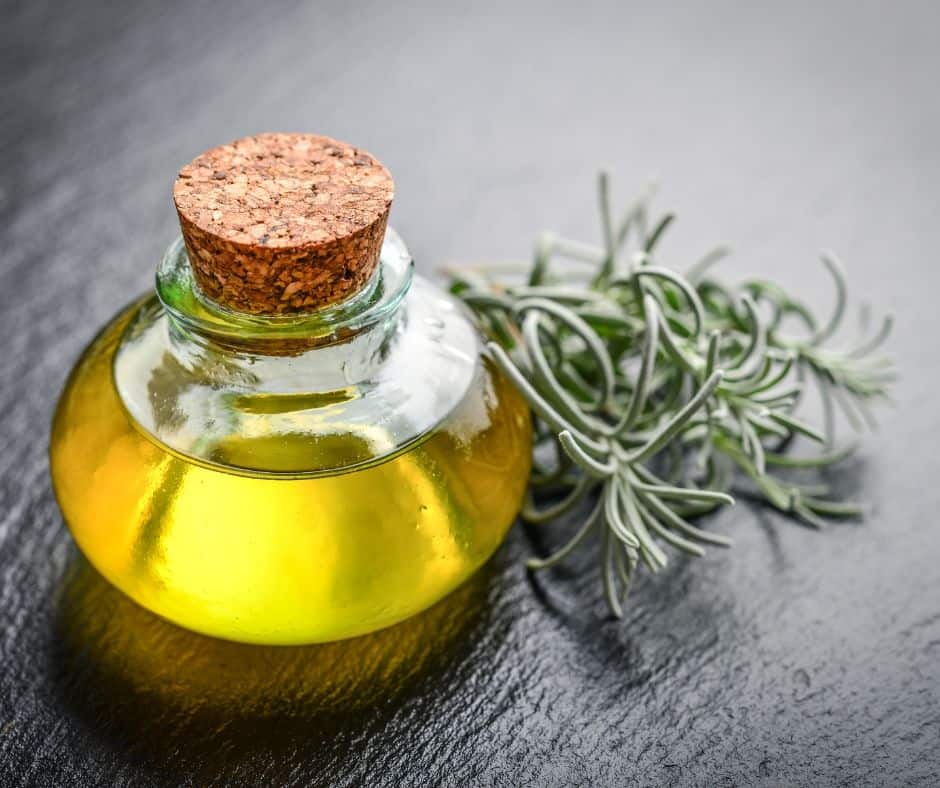
Essential oils are the oils extracted from plants or parts of plants such as fruit, flower or leaves that contain the essence of the plant hence the name. eg: Chamomile oil. They are widely used in aromatherapy.
Carrier oils are the fixed oils which are used to carry or dilute the essential oils eg: Castor oil.
Aromatic liquid substances extracted from flora, grasses, fruits, trees etc. are called essential oils. [4] These concentrated liquids have multiple uses in medicine.
They may be used orally (ingested), topically (applied to the skin) or aromatherapy inhaled which is a form of alternative medicine.
They are extracted using either steam and water (distillation) or using mechanical techniques such as cold pressing.[5]
Examples of essential oils are peppermint oil, citronella oil, cedarwood oil, etc.
Carrier oils are fixed vegetable oils in which the essential oils can be dissolved easily and efficiently making them ready for use.[6]
Examples are Almond oil, Castor oil, Jojoba oil.
Can Essential Oils be Beneficial in Hair Growth?

Yes, essential oils can benefit hair growth in many ways. Studies have been conducted with essential oils such as peppermint, lavender and rosemary oils. Several studies have been conducted which show that essential oils can improve the follicle density, depth, hair growth and dermal thickness.
Essential oils are known to remedy many health conditions and are believed to have fewer side effects than most other treatments.
Essential oils can also have health benefits in hair growth.
A study conducted in animal models showed that when lavender oil was applied to the animals back five times a week for one month the lavender oil had a marked hair growth promoting effect and thus it could be used as a hair growth promoting agent. [7]
Another study tested peppermint oil on mouse models and found that it significantly promoted hair growth with an increase in follicle number, depth, and increased dermal thickness. [8]
When rosemary oil was tested in male patients with hair fall and compared to minoxidil which is a topical drug for alopecia.
They found the oil to be as effective as the drug also scalp itching as a side effect was more common with the drug. [9]
In one scenario the participants with alopecia (hair fall) were divided into two groups. One group used essential oils with carrier oils while the other group used carrier oils alone.
The group which used both essential and carrier oil experienced significant benefit. [10]
A trial with thyme oil showed that it can be useful in case of alopecia and using essential oil along with a carrier oil is more beneficial
Thus proving that essential oils can be a highly effective alternative therapy.
What are the Best Essential oils for Hair Growth?
There are several essential oils that are useful for hair growth. Some of them include rosemary, peppermint, thyme, lavender, tea tree, and ylang-ylang oil. These oils are known to promote hair growth, prevent hair fall, increase follicle density and dermal thickness and also increase follicle depth.
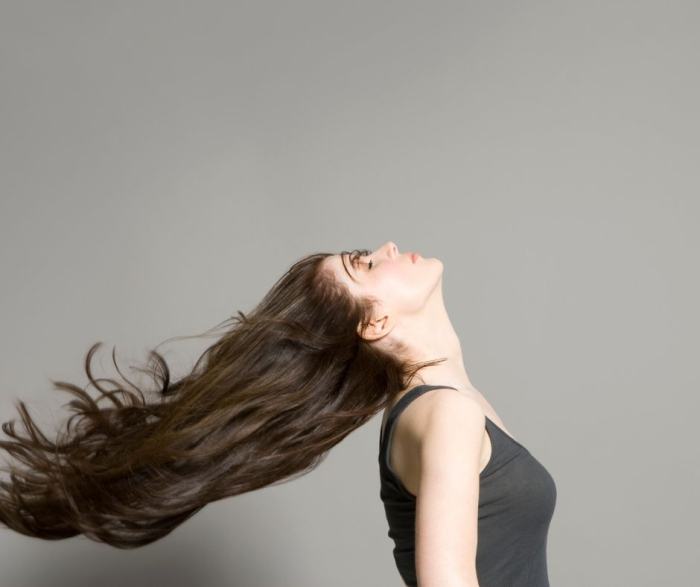
1. Lavender oil
Animal studies with lavender oil show that it can increase hair growth and it also has antimicrobial properties which can reduce the risk of scalp infections. [11]
Add 2-3 drops of the oil to 20ml of the carrier oil and massage into the scalp. Keep it for 10 minutes and then shampoo the hair.
2. Peppermint Oil
Peppermint oil can cause a cool sensation when applied to the scalp which is responsible for increased blood circulation.
Studies have shown that the oil when applied to animal models was able to increase the follicle depth, density and dermal thickness. [12]
Add 2-3 drops of the oil to 20ml of the carrier oil such as coconut oil and massage into the scalp. Keep it for 5 minutes and then shampoo the hair.
3. Rosemary Oil
Rosemary oil has been tested in male patients having hair fall and compared to the drug minoxidil and found that while its efficacy was the same as the drug in restoring hair growth.
It is known to cause less scalp itching compared to minoxidil and therefore may be a better option. [13]
A few drops of rosemary oil can be added to coconut oil and applied to the scalp prior to shampooing. This can be done twice or thrice a week.
4. Thyme Oil
A study showed that daily massage with thyme oil diluted in a carrier oil such as jojoba or grapeseed oil was more effective in increasing follicle density and promoting hair growth than carrier oils used alone. [14]
5. Tea Tree Oil
When tea tree oil was used along with minoxidil it was more effective compared to minoxidil used alone for alopecia.[15]
A few drops of tea tree oil can be added to the shampoo or conditioner or can be diluted in a suitable carrier oil and massaged onto the scalp.
Leave for 15 minutes before rinsing.
6. Ylang Ylang Oil
The oil is known to stimulate sebum production, which can be useful in case of a dry scalp. Lack of sebum can lead to dry coarse hair, promoting hair fall and breakage. [16]
Mix five drops of the oil into two tablespoons of warm oil and massage it into the scalp.
Can Essential Oils be used for Dry Hair?
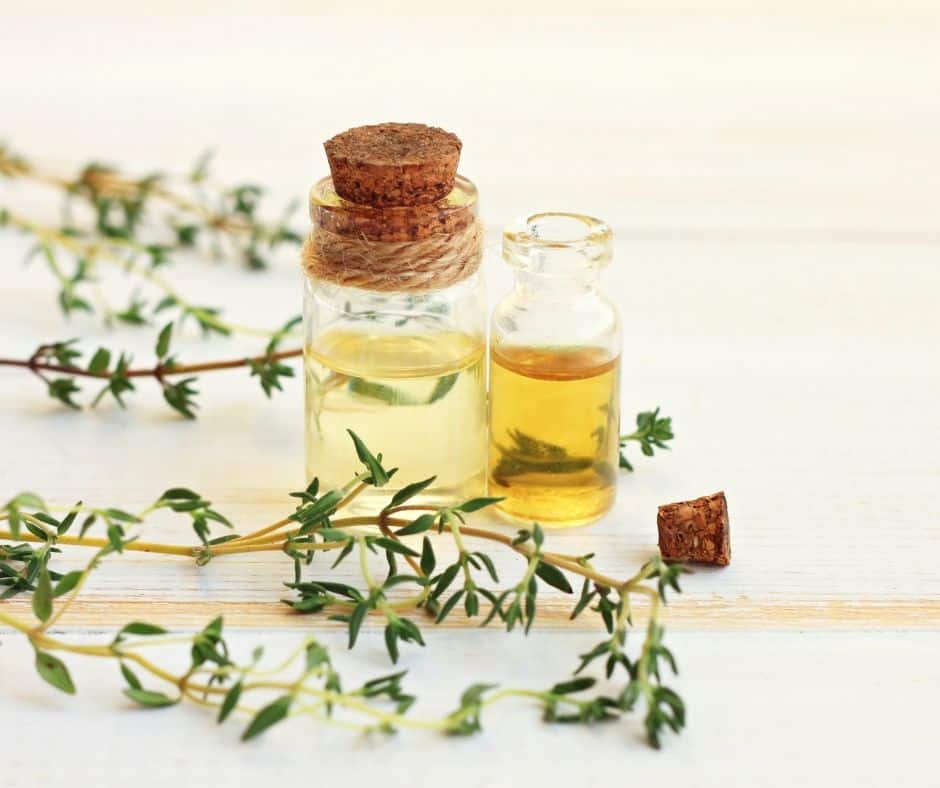
Yes, essential oils can be used for dry hair as they can increase the blood circulation to the scalp and provide elasticity to the hair thus avoiding any breakage. Essential oils such as carrot seed, cedarwood, sandalwood, and geranium oil are useful for dry hair.
Ylang ylang oil is known to stimulate sebum production, which can be useful in case of a dry scalp. Lack of sebum can lead to dry coarse hair, promoting hairfall and breakage. [17]
Sandalwood oil is one of the best oils for adding moisture to the hair, while geranium oil can restore follicle health and balance oil production [18]
Carrot seed oil can add elasticity to the hair while cedarwood oil can moisturize the scalp and increase blood flow.[19]
Thus many essential oils can help manage dry and brittle hair, providing a healthy scalp and shiny hair.
Can Carrier oils be used for Hair Growth?
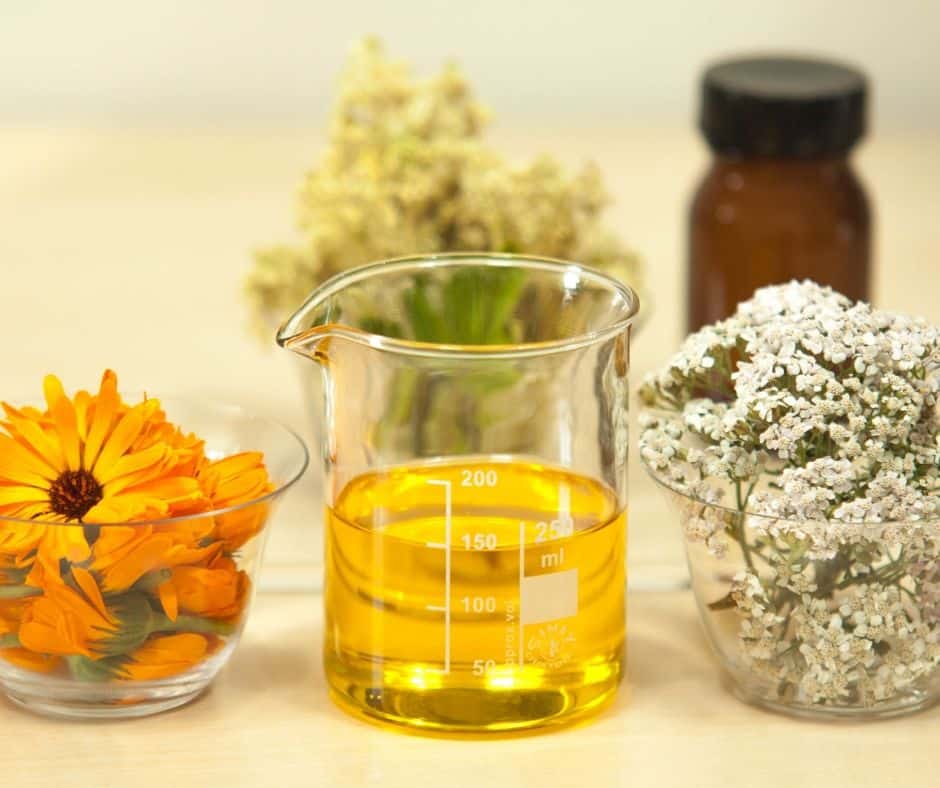
Yes, carrier oils can be useful for hair growth. Carrier oils such as avocado, jojoba and argan oil to name a few contain antioxidants such as vitamin E which keep away free radical and the high-fat content ensures that they are well absorbed into the hair follicles.
Avocado oil can be a useful carrier oil to keep hair healthy and shiny.
The oil contains high amounts of fatty acids which ensures that the scalp is moisturized and the oil is well absorbed into the roots and hair shafts. [20]
Argan oil is moisturizing to the scalp and can be used to treat dandruff and split ends. [21]
It can make dry and brittle hair easily manageable.
Many shampoos available in the market today contain argan oil as an added ingredient.
The jojoba carrier oil is great for hair as it contains vitamins B and E. Both these help to retain moisture and can be useful to fight off free radicals that may damage the hair. [22]
They are also great for removing clogs from the hair.
Can essential oils be used for hair regrowth?
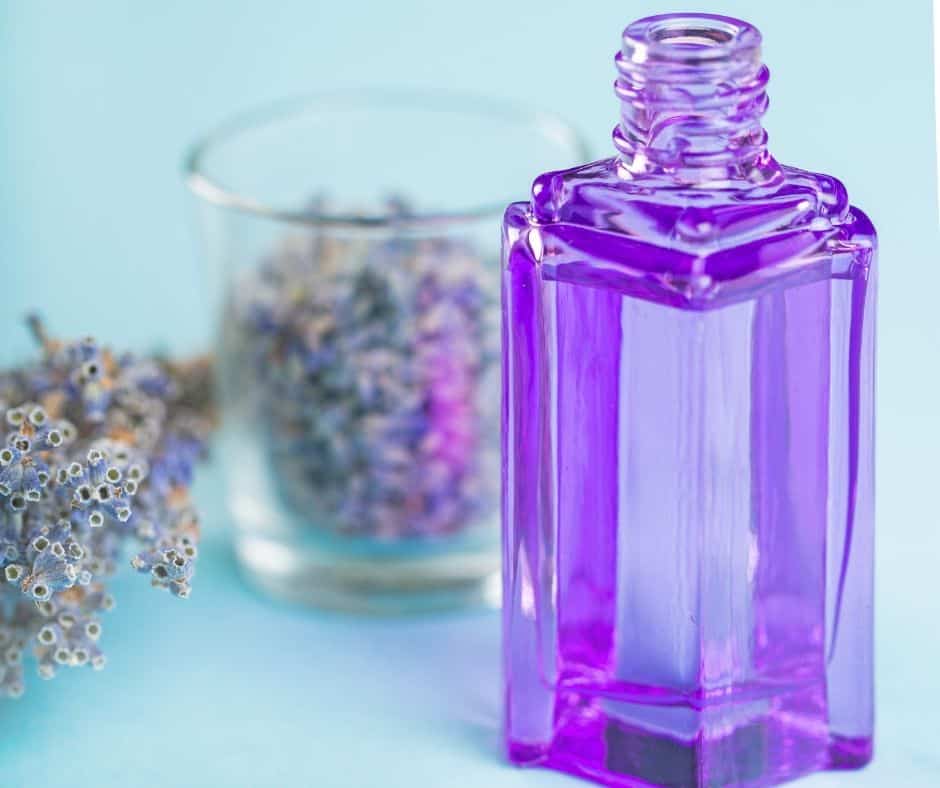
Yes, many essential oils have been tried and tested for hair regrowth, in the clinical condition of hair fall called as alopecia. These results have shown that oils such as rosemary and thyme can be as, if not more beneficial for alopecia than drugs like minoxidil as well as these oils are more effective when mixed with carrier oils such as jojoba oil than when using carrier oils alone.
When rosemary oil was tested in male patients with hair fall and compared to minoxidil which is a topical drug for alopecia.
They found the oil to be as effective as the drug also scalp itching as a side effect was more common with the drug.[23]
In one scenario the participants with alopecia (hair fall) were divided into two groups. One group used essential oils with carrier oils while the other group used carrier oils alone.
The group which used both essential and carrier oil experienced significant benefit. [24]
A trial with thyme oil showed that it can be useful in case of alopecia and using essential oil along with a carrier oil is more beneficial.
Precautions with Essential Oils for Hair Growth
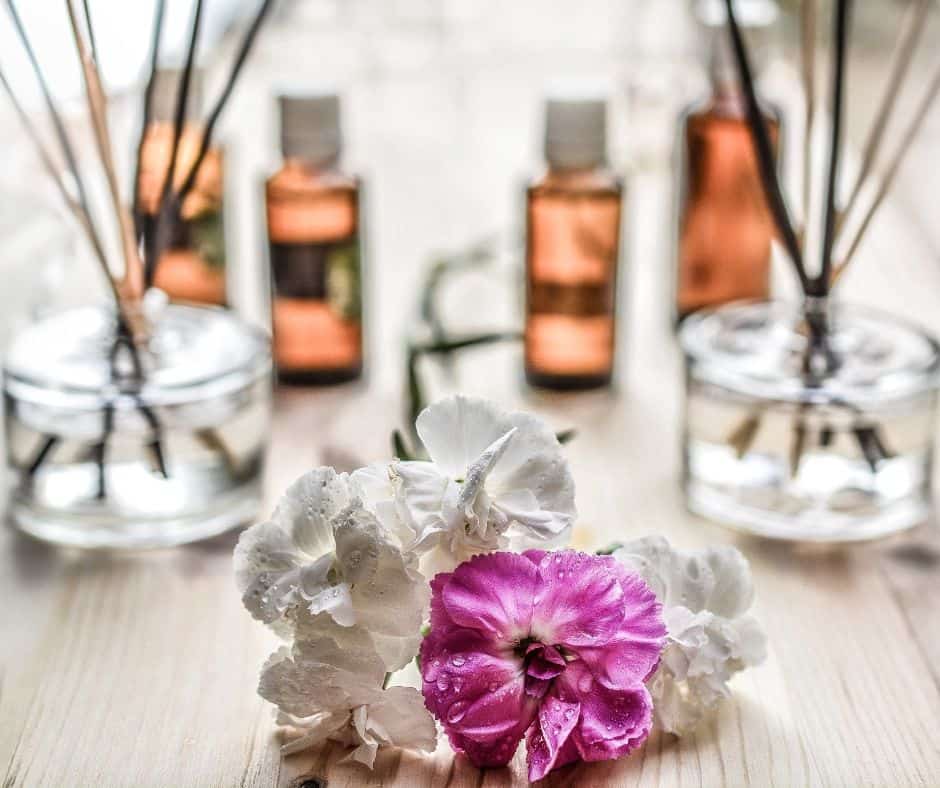
Some precautions that are necessary when using essential oils for hair growth are always performed a skin test to check for allergies and never apply the oil topically to the scalp without diluting it with a suitable carrier oil such as jojoba oil.
Always consult a physician or aromatherapist before using essential oils.
Test the essential oil on a small area of the skin for sensitivity, before applying it to the scalp. [25]
Essential oils should always be used with a carrier oil, as they are concentrated if used directly can damage the skin.[26]
Also, it provides the added benefit of moisturizing the scalp.
Use of essential oils in infants less than 6 months of age should be avoided and use with caution during pregnancy, asthma and epilepsy patients.[27]
Choice of essential oil used in pregnancy should be made with care and preferably avoid using during the 1st trimester. [28]
When using essential oils during pregnancy ensure that the room is well ventilated to avoid an overpowering smell that may lead to nausea. [29].
During pregnancy, the use of essential oils should be switched up and do not use the same essential oil continuously i.e. every day for several weeks. [30]
Essential oils should never be diluted with water and used, as oil and water is immiscible. [31]
Always use therapeutic grade essential oils. [32]
Always consult your physician or a qualified aromatherapist before using any essential oils. [33]
Final Word
Essential oils such as thyme, rosemary, lavender and sandalwood along with carrier oils such as jojoba, grapeseed and argan oil are great for hair health.
Essential oils can improve the health of the hair with a very small risk of side effects. They are affordable and easy to use.
Just simply mixing a carrier oil or shampoo with the essential oil and rising it can provide a healthy, shiny and strong hair.
